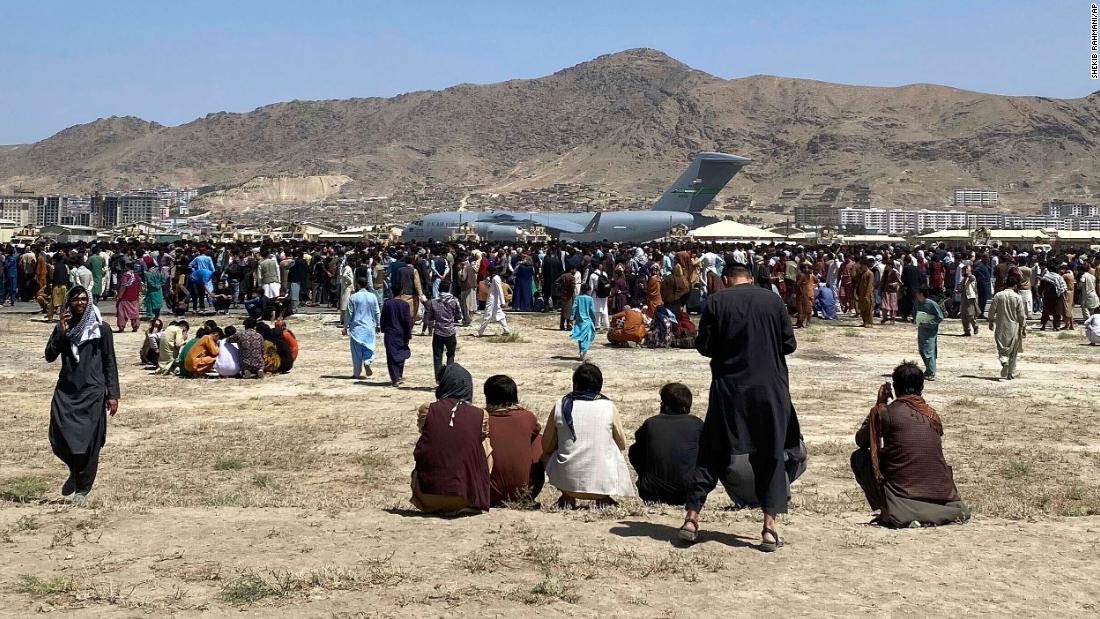Opinion: Gen. Petraeus calls the Taliban takeover a ‘disheartening and sad’ endgame
The general made his comments in an email exchange with Peter Bergen about the Taliban takeover of Afghanistan.
BERGEN: Did the peace negotiations with the Taliban over the past three years set the stage for what happened?
BERGEN: Did Biden need to be bound by the Trump agreement with the Taliban?
BERGEN: Did the Afghan army fight?
PETRAEUS: Yes, at the outset; however, once it was clear to commanders on the ground that the Afghan Air Force could no longer respond to simultaneous attacks all around the vast country and provide reinforcements, resupply, air medevac, and close air support, local military and political leaders decided it was best to cut a deal rather than fight to the finish. This should not have been a surprise. Afghans have demonstrated over many centuries that they will do what is necessary to survive, and they are very skilled at recognizing which way the wind is blowing and when it is shifting.
BERGEN: What could have been done differently than a unilateral pullout? What US/NATO presence was militarily sustainable? Politically sustainable in the US?
BERGEN: The contractors were also pulled out: What effect did that have?
BERGEN: Was the Taliban takeover predictable?
BERGEN: Some have suggested this was an intelligence failure: Was it?
PETRAEUS: It is impossible to say without knowing what the intel community assessments were that were provided to the national security team along the way. Beyond that, as you noted on CNN last week, there is a longstanding practice of administrations in Washington recasting a failed policy as an intelligence failure. I tend to think that the latter was not the case here.
BERGEN: Ahmad Shah Massoud and Amrullah Saleh are leading the resistance to the Taliban. Any thoughts on how that might go?
PETRAEUS: They are both committed, charismatic, and determined leaders, and Amrullah Saleh is very experienced as well (he was my Afghan counterpart when I was Director of the CIA); they have attracted a number of forces who oppose the Taliban and refused to be part of the deals that were cut at local levels. But the major positive feature of the Panjshir Valley where they are leading the resistance — its inaccessibility and natural defensive terrain — can also be a significant shortcoming, given its lack of connectivity with the outside world, from which it needs to get many goods, commodities, and services, not the least of which is refined fuel products. Without a corridor to the border or some other arrangement to the north, they will be quite vulnerable to just being isolated, especially as the Taliban quite impressively seized many of the provinces in the northeastern part of Afghanistan near the beginning of the campaign, and that makes it difficult for those in the Panjshir to establish a corridor for resupply.
BERGEN: Are the Taliban reformed?
BERGEN: What does this mean for al Qaeda and other jihadist groups? Threats to the US homeland? Or American targets overseas?
PETRAEUS: We have to assume that the Taliban victory will make it easier for al Qaeda and the Islamic State and other extremist groups to establish sanctuaries on Afghan soil — though I know that our intelligence agencies and military forces will do all that is humanly possible to identify, disrupt, degrade, and destroy any such sanctuaries (including virtual sanctuaries in cyberspace, too) well before they can establish a capability that could threaten our homeland or the homelands of our NATO allies.
BERGEN: How does this Taliban victory make you feel?
PETRAEUS: Hearing of the Taliban takeover was hugely disheartening and sad. That was especially so for those of us who worked with Afghans with whom we worked and who had such high hopes. I am sure that also has to be the case for families in the US and coalition countries who had a son or daughter or spouse in uniform give the “last full measure of devotion” serving in Afghanistan. Few individuals were as privileged as I was to observe — and lead — our men and women in uniform in Iraq, Afghanistan, and the greater Middle East. In my experience, with rare exceptions, those who volunteered to serve in the military in the wake of the 9/11 attacks performed with very enormous professionalism, determination, innovativeness, and courage. They earned recognition as America’s New Greatest Generation, and we should all be grateful to them for answering our Nation’s call at a time of war, regardless of views about the policies that we executed. Moreover, all who served there should take considerable pride in having provided Afghanistan and the Afghan people some 20 years of relative freedom and opportunity compared to the situation under the Taliban before we ousted that regime in late 2001.
![]()


